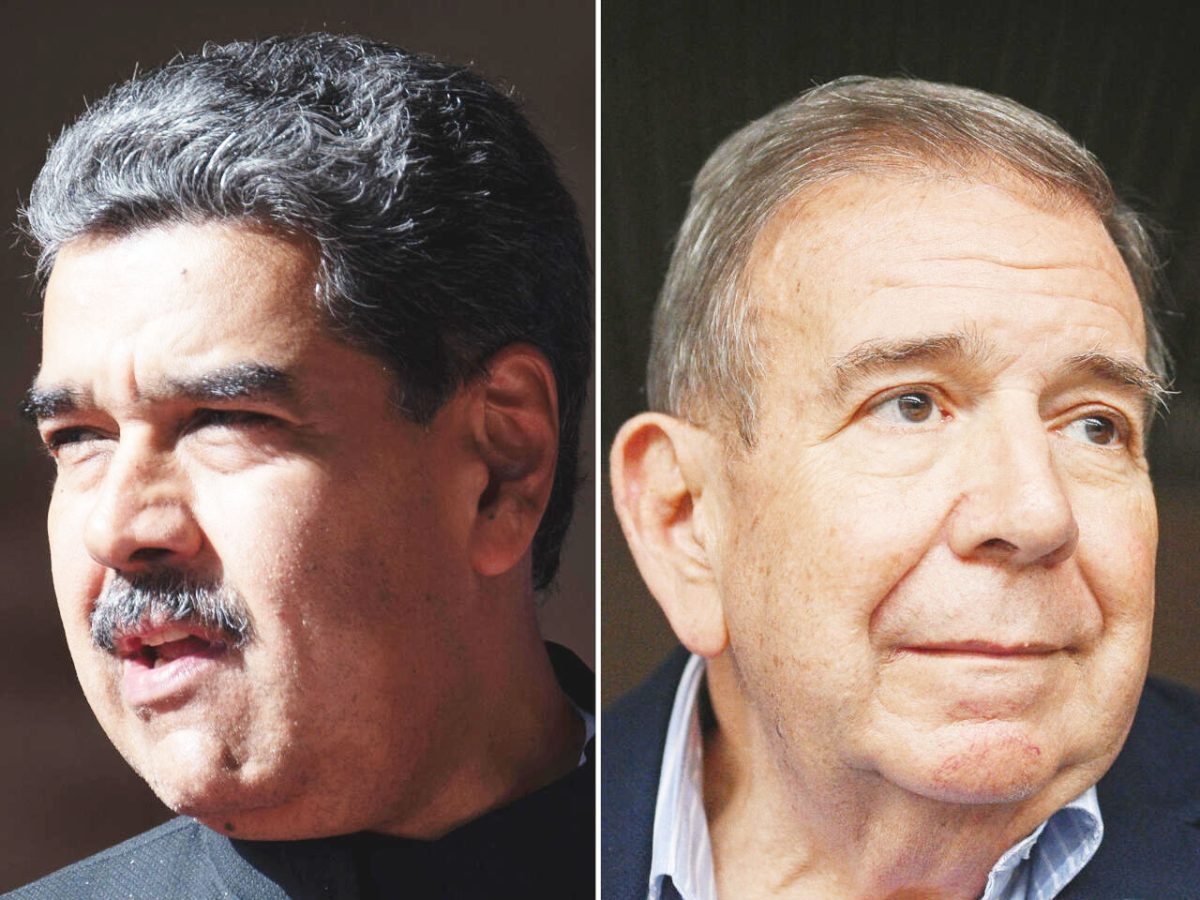CARACAS/BRASILIA, (Reuters) – Brazil, Colombia and Mexico are pushing for Venezuela’s President Nicolas Maduro to meet with the opposition candidate in last week’s disputed election, a diplomatic source told Reuters today, as increasing numbers of Western governments reject Maduro’s claim to victory.
The trio of leftist-led Latin American countries want Maduro and Edmundo Gonzalez to meet without popular opposition leader Maria Corina Machado, who spearheaded the Gonzalez campaign after being barred from holding office, the source said.
Venezuela’s electoral authority, seen by critics as favouring the ruling socialists, proclaimed Maduro the winner in last Sunday’s vote, saying on Monday that he obtained 51% compared to 46% for Gonzalez.
The head of the CNE electoral body reaffirmed a similar margin of victory for Maduro today and said it has now counted 97% of the vote.
However, despite demands from the opposition and governments and organizations throughout the region the CNE has still not released detailed vote tallies.
The CNE’s website has been down since Monday, which authorities have blamed on a hack, without presenting evidence.
The opposition says its own detailed tally shows Gonzalez likely received 67% of the vote, winning by a margin of nearly 4 million votes, and earning more than double Maduro’s support, a result in line with independent exit polls.
The opposition has uploaded to a website scanned copies of local vote tallies covering nearly 82% of voting machines, obtained by registered opposition witnesses after Sunday’s election.
Some nations, including the United States and Argentina, have already recognized Gonzalez as the election’s winner, with U.S. Secretary of State Antony Blinken on Thurs-day citing “overwhelming evidence.” Costa Rica, Ecuador, Panama and Uruguay also concluded today that Gonzalez received the most votes.
Others, including Rus-sia, China and Cuba, have congratulated Maduro.
The top diplomat for Norway, which has attempted to mediate past disputes between the government and opposition, cited “legitimate doubts” over how the election was conducted in a statement today.
“We expect the Vene-zuelan authorities to comply with the agreed commitments and to respect the will of the Venezuelan people,” said Foreign Minister Espen Barth Eide.
The Maduro government has sought to brush off foreign critiques as interference in its affairs, accusing Washington of seeking to overthrow Venezuela’s government.
Earlier today, Venezue-lan Foreign Minister Yvan Gil accused Washington of being “at the forefront of a coup attempt.”
In a post on social media, Gonzalez thanked the U.S. “for recognizing the will of the Venezuelan people.”
The presidents of Brazil, Colombia and Mexico have traditionally refrained from antagonizing Maduro, but their call for detailed tallies is an attempt to resolve the tense standoff that further threatens stability in Venezuela and increases fears of a fresh migration exodus.
Once one of Latin America’s wealthiest nations, oil-rich Venezuela has suffered a prolonged economic meltdown and the mass migration of about a third of its population over roughly the past decade. That largely overlaps with the tenure of Maduro, who blames U.S. sanctions for the country’s problems.
On Friday, Mexican President Andres Manuel Lopez Obrador criticized the U.S. stance as “an excess” and accused Blinken of “overstepping his boundaries.”
Celso Amorim, the main foreign policy adviser for Brazilian President Luiz Inacio Lula da Silva, has cast some doubt on the opposition’s vote tallies, describing them as “informal data,” and arguing that parts were “based on quick count mechanisms, exit polls,” in an interview with CNN Brazil.
Amorim emphasized that Brazil did not seek to interfere in its neighbor’s internal affairs, but wanted to promote “social peace for Venezuela.”
Tensions on the ground in Venezuela have been mounting all week.
On Friday morning, opposition leader Machado’s party, Vente Venezuela, said its headquarters in Caracas was vandalized overnight after six hooded men with guns overpowered its security guards, entered offices and took equipment.
“We denounce the attacks and insecurity to which we are subjected for political reasons,” the party said on social media.
Later in the day, an allied opposition party, Voluntad Popular, said another one of its national leaders, Roland Carreño, had been arbitrarily arrested. That followed the detention of the party’s top leader earlier in the week.
Anti-Maduro protesters clashed with police this week, and fresh opposition marches are expected on Saturday, which both Gonzalez and Machado are expected to attend.
Maduro warned in a press conference on Friday that his government had discovered a “terrorist plot” set to take place in Bello Monte, near the opposition march meeting point.
The president, who characterizes the opposition as fascists and regularly denounces planned attacks and assassination attempts, played two audios and showed a screenshot of a text conversation that he said proved the plot.
He added that authorities have received 5,000 reports of criminal activities associated with protests via an app it published this week.
So far, at least 20 people have been killed in post-election protests, according to rights group Human Rights Watch. Some 1,200 others have been arrested in connection with the demonstrations, according to the government.
Relatives of some of those arrested gathered outside police headquarters in Caracas on Thursday to call for their release.






